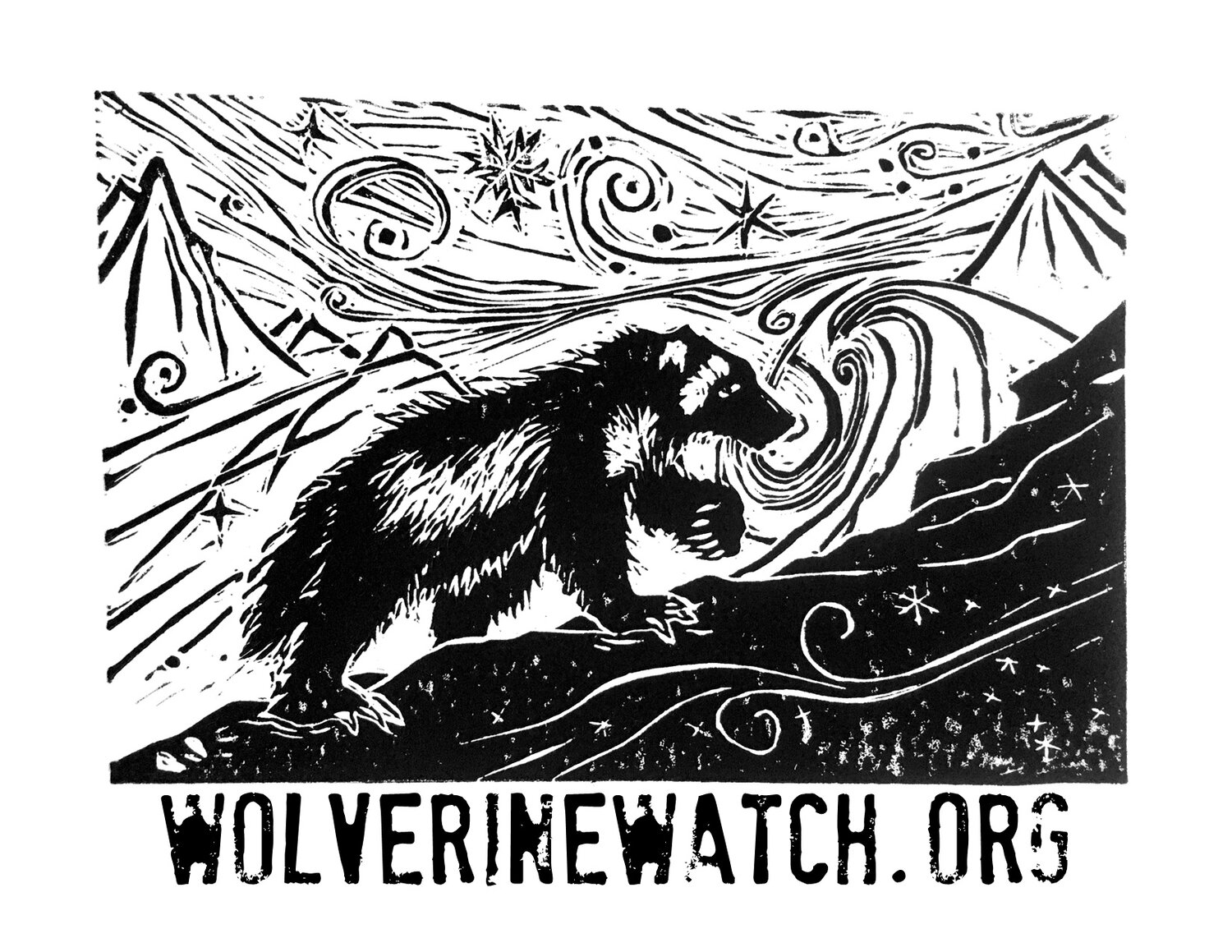Updates
Wolverines are declining in the Canadian Rockies: new research paper
Our new research paper is out! In short: Protection status of its habitat, human disturbance through recreation and development, snow cover, and trapping all impact a declining wolverine population in the Canadian Rockies. Read the article:
2021 Annual Research Report - Female Wolverines
2021 annual research report female wolverine project
What have we achieved in 2021 at the female wolverine project? The highlightiest highlight: we finished classifying the photos! We looked at over a million photos, and ended up with over 100,000 wolverine photos. Phew. For that and more…
Review paper on 10 years of wolverine research.
Become a wolverine expert reading just one single research paper! Together with several other biologists, we just published a review paper on what we collectively learned about wolverines in the last decade. In short, we learned a lot, and so can you: https://doi.org/10.1016/j.gecco.2022.e02019
We’re just kidding of course, nobody can be an expert in anything just by reading a couple reserarch papers. What our new review is intended to do, is to be a starting point for people who are interested in wolverine ecology, who want or need to learn about this species and the challenges it faces. It’s meant to be a comprehensive summary, not a substitute for in-depth reading and study. It’s meant to guide you towards the relevant scientific research papers, the researchers who conducted the respective studies, and provide an overview of the still-open questions.
Perhaps you find inspiration for your own wolverine research project? Or it helps you in your work, if you’re tasked with the creation of a multi-species management plan? Or you just love wolverine science, because you want to understand the world around you better? In any case, this paper is for you. And it’s open access, meaning it doesn’t sit behind a pay-wall, but is free of charge for you to download and share.
2020 Annual Research Report
What did we do in 2020? The annual report for the project Effects of Human Activities and Natural Processes on Wolverine Reproduction and Connectivity is now available!
Effects of Human Activities and Natural Processes on Wolverine Reproduction and Connectivity
What did we do in 2020? This was the last of three years of large-scale field work. Fortunately, the pandemic hit us in the last, not the first year - we managed to get virtually everything done that we had planned for 2020. For details, have a look at the report:
What will we do next? The bulk of the project’s field work is completed, but not the project itself! We will spend the next 18 months on analysis, writing up research findings, and outreach. Mirjam, the PhD student, will work full time as the main researcher on the project’s analyses, with help and support from collaborators and her PhD committee members.
Lots to come still - collecting the millions of photos and thousands of hair samples was only the first step!
Tips for responsible winter recreation in wildlife habitat
How can we responsibly recreate in wolverine and caribou habitat? Things to know and think about.
Earlier this winter, we (aka Doris Hausleitner, Andrea Kortello and Mirjam Barrueto) participated in an online-workshop series “Wildlife Wise“, to share what we know about winter recreation in wolverine country. It’s a difficult topic, partly because, really, if we’re honest to ourselves, all wildlife but the Canada Jays and Ravens would probably prefer us staying away during the harsh months where all wildlife struggles to survive. On the other hand, most of us love spending time in the snowy mountains in winter, be it on foot, ski, sled, snowshoe – winter recreation is a big reason why we live where we do. So – what are things to consider? How does one recognize wolverine dens and caribou tracks? Which aspects of recreation create less and which create more disturbance? We don’t have all the answers (but do have some); the series is intended to give you new insights and create understanding for why biologists and land managers sometimes recommend restrictions, and sometimes don’t.
The videos are all a bit different depending on your area of interest – but they all also apply to wolverine (and caribou) habitat in general. They start with a very short intro by Nadine Raynolds (Y2Y), a wolverine presentation by one or two of us, and then feature Aaron Reid, a wildlife biologist with the BC government, who gives excellent information on mountain caribou.
The Wildlife Wise Workshop Series was organized by Yellowstone to Yukon Conservation Initiative, with much appreciated support from the Alpine Club of Canada, the Columbia Basin Trust, and the awesome Pow Gals.





